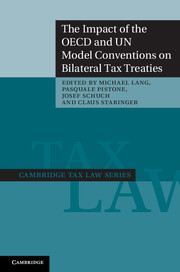Book contents
- Frontmatter
- Contents
- Contributors
- Preface
- Table of cases
- Table of statutes
- General report
- 1 Argentina
- 2 Australia
- 3 Austria
- 4 Belgium
- 5 Brazil
- 6 Canada
- 7 Chile
- 8 China
- 9 Colombia
- 10 Croatia
- 11 The Czech Republic
- 12 Estonia
- 13 Finland
- 14 France
- 15 Germany
- 16 Hong Kong
- 17 Hungary
- 18 India
- 19 Italy
- 20 Lebanon
- 21 Liechtenstein
- 22 The Netherlands
- 23 New Zealand
- 24 Norway
- 25 Peru
- 26 Poland
- 27 Portugal
- 28 Romania
- 29 The Russian Federation
- 30 Serbia
- 31 Slovakia
- 32 Slovenia
- 33 Spain
- 34 Sweden
- 35 Uganda
- 36 The UK
- 37 The USA
- Index
- References
8 - China
Published online by Cambridge University Press: 05 November 2014
- Frontmatter
- Contents
- Contributors
- Preface
- Table of cases
- Table of statutes
- General report
- 1 Argentina
- 2 Australia
- 3 Austria
- 4 Belgium
- 5 Brazil
- 6 Canada
- 7 Chile
- 8 China
- 9 Colombia
- 10 Croatia
- 11 The Czech Republic
- 12 Estonia
- 13 Finland
- 14 France
- 15 Germany
- 16 Hong Kong
- 17 Hungary
- 18 India
- 19 Italy
- 20 Lebanon
- 21 Liechtenstein
- 22 The Netherlands
- 23 New Zealand
- 24 Norway
- 25 Peru
- 26 Poland
- 27 Portugal
- 28 Romania
- 29 The Russian Federation
- 30 Serbia
- 31 Slovakia
- 32 Slovenia
- 33 Spain
- 34 Sweden
- 35 Uganda
- 36 The UK
- 37 The USA
- Index
- References
Summary
The relevance of the OECD and UN Model Conventions and their Commentaries for the interpretation of Chinese tax treaties
As of May 2010, the People's Republic of China has ninety-one income tax treaties in effect and one treaty pending, making the country one of the most well-connected members of the international tax treaty network. As a relative latecomer to the use of treaties – its first tax treaty, with Japan, took effect barely a quarter of a century ago – China has relied heavily on the OECD Model Tax Convention on Income and on Capital (OECD Model), as well as on the United Nations Model Double Taxation Convention between Developed and Developing Countries (UN Model) (jointly, the Models) to negotiate this impressive set of agreements. Being the approximate templates for China's tax treaty negotiations, the Models have had an impact on China's treaties that is all too obvious and should cause little surprise. One could try to more finely calibrate this impact by studying the many departures in substantive provisions and wording in China's treaties from the Models (which will be done to a certain extent in this chapter), but the details of such an exercise can only be expected to pale beside a basic fact: as China had started from a virtual tabula rasa insofar as tax treaties are concerned, however selective it has attempted to be, its borrowings from the Models inevitably took on a wholesale character.
- Type
- Chapter
- Information
- Publisher: Cambridge University PressPrint publication year: 2012



